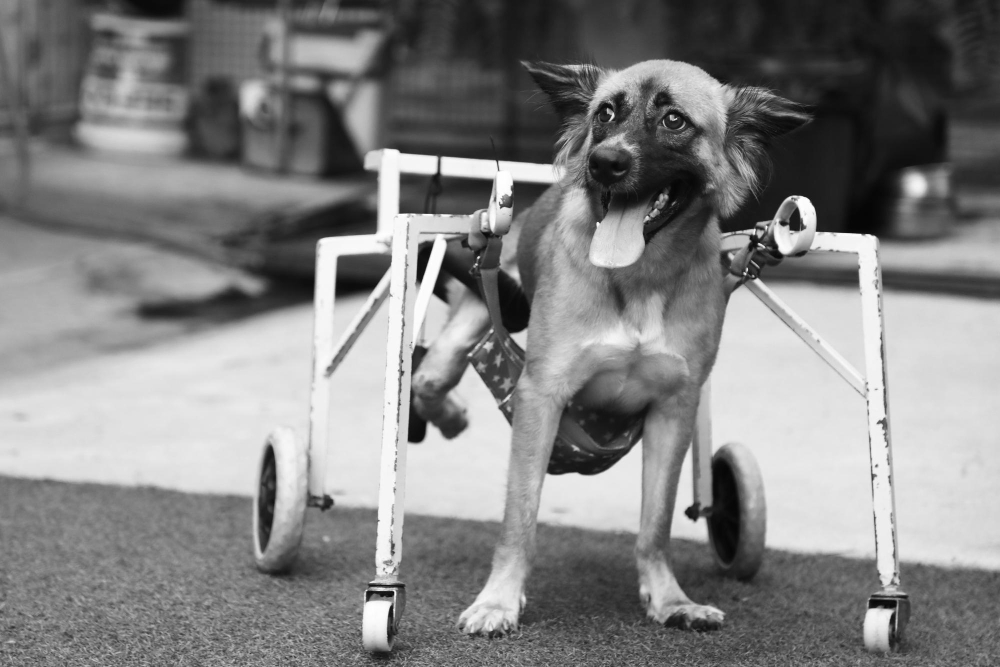Common Mobility Issues in Aging Pets

Common Mobility Issues in Aging Pets

Understanding Mobility Issues in Aging Pets
Our pets are more than companions—they're family. Watching them grow older is bittersweet. While we cherish the time spent with them, aging often brings challenges, particularly mobility issues. These struggles can impact your pet's quality of life and your ability to help them thrive in their golden years. Gaining a better understanding of these issues can equip you to provide the best care possible, whether through modifications at home, veterinary treatments, or compassionate end-of-life decisions.
For pet owners in Jupiter, FL, seeking support for their aging pets, resources like in-home euthanasia services are available to ensure your pet’s comfort and dignity.
Common Mobility Issues in Aging Pets
Aging pets often deal with mobility problems that stem from a variety of conditions. Here’s a closer look at some of the most common causes:
1. Arthritis
Arthritis is one of the most prevalent mobility issues in senior pets, affecting dogs and cats alike. It occurs when the cartilage in joints wears down over time, causing inflammation and discomfort. Signs to look out for include:
- Difficulty standing, sitting, or climbing stairs
- Limping or favoring certain limbs
- Irritability or reluctance to be touched near joints
- Reduced activity or willingness to play
2. Hip Dysplasia
Hip dysplasia is particularly common in larger dog breeds but can also affect smaller dogs and some cats. It’s a genetic condition where the hip joint doesn’t fit together properly, leading to joint wear and tear. Over time, it causes pain, stiffness, and difficulty with mobility.
3. Neurological Disorders
Conditions such as intervertebral disc disease (IVDD) or degenerative myelopathy can affect the spine and nervous system of pets. These disorders may manifest as dragging limbs, loss of balance, or even partial paralysis.
4. Obesity
Excess weight places added stress on a pet’s joints and mobility. Additionally, heavier pets tend to have a higher risk of developing arthritis and joint problems, making it even harder for them to move comfortably. Regular exercise and a balanced diet are key to preventing obesity-related mobility challenges.
5. Muscle Atrophy
Muscle atrophy is the natural weakening and shrinking of muscles as pets age or when they aren't as active due to joint discomfort. This muscle loss can make simple activities like standing or walking a struggle for aging pets.
6. Cancer
Bone cancers, such as osteosarcoma, are not uncommon in older dogs and cats. These cancers can impact mobility by causing pain and reducing the strength of affected limbs. Early detection and treatment may help, but mobility often becomes increasingly difficult as the disease progresses.
Supporting Aging Pets With Mobility Issues
While these issues are common, there are steps you can take to help your aging pet stay comfortable and maintain mobility for as long as possible:
1. Regular Vet Visits
Routine veterinary check-ups are essential to diagnose and manage mobility issues early. Your vet can suggest treatments like anti-inflammatory medications, joint supplements (such as glucosamine and chondroitin), or even specialized therapies.
2. Physical Therapy and Exercise
Exercises tailored to your pet’s abilities can strengthen muscles, keep joints flexible, and improve mobility. Hydrotherapy (water-based exercises) is especially helpful for pets with arthritis or hip issues.
3. Weight Management
Maintaining a healthy weight reduces stress on your pet’s joints. Work with your vet to develop a balanced diet and exercise plan that suits your pet’s needs.
4. Orthopedic Aids
Specialized products like orthopedic pet beds, harnesses, ramps, and non-slip mats can make life easier for both you and your pet. These aids reduce strain and provide extra support for everyday activities.
5. Pain Management
Pain management is crucial for pets with mobility issues. Your veterinarian may recommend pain relief medications, acupuncture, or laser therapy, depending on your pet’s condition.
6. Adapting Your Home
Simple changes to your home can make a big difference:
- Place food and water bowls at a comfortable height.
- Use ramps or stairs to help pets get onto beds or furniture.
- Keep their favorite spots easily accessible by removing obstacles.
When to Consider End-of-Life Care
While addressing mobility challenges can significantly improve your pet’s quality of life, there may come a time when these issues become too severe to manage effectively. Recognizing when your pet is no longer enjoying life is one of the most difficult but compassionate decisions a pet owner can make. Here are some signs that it may be time to consider end-of-life care:
- Persistent pain that cannot be managed with medication or other treatments
- Loss of bladder or bowel control
- Frequent injuries from falls or difficulty moving
- Disinterest in eating, playing, or interacting with family members
- Severe anxiety or confusion due to decreased mobility
If you're grappling with this decision, services like in-home euthanasia can provide a peaceful and comfortable option for your beloved pet.
The Benefits of In-Home Euthanasia
Saying goodbye to your pet is one of the hardest things you’ll ever do. Traditional vet clinics can sometimes feel cold or clinical, making an already emotional process even more distressing. This is why many families in Jupiter, FL, are turning to in-home euthanasia services.
At-home euthanasia allows your pet to pass peacefully in the comfort of their favorite spot—surrounded by loved ones. Additionally, this option:
- Reduces stress for pets who are anxious in unfamiliar environments.
- Allows private, uninterrupted time for goodbyes.
- Provides a comforting and supportive environment for family members.
Rover Veterinary Care offers professional, compassionate in-home euthanasia services in Jupiter, FL. Our experienced team understands the deep bond you share with your pet and is here to help guide you through this difficult process.
How to Approach This Decision
Making the decision for in-home euthanasia is never easy. Here are a few tips to help you decide:
- Talk to Your Vet: Your veterinarian can provide valuable insights into your pet’s medical condition and whether their quality of life has significantly declined.
- Evaluate Their Quality of Life: Use a quality-of-life scale or checklist to assess your pet’s overall happiness and health.
- Trust Your Intuition: You know your pet best. Pay attention to changes in their behavior, energy levels, and daily routines.
Final Thoughts
Aging is a natural part of life, even for our cherished pets. While mobility issues can present challenges, proactive care and thoughtful adjustments can ensure your pet’s senior years are as happy and comfortable as possible. However, for some pets, mobility struggles may become so severe that it impacts their quality of life. At this difficult stage, choosing in-home euthanasia can be a deeply compassionate option.
If you're considering in-home euthanasia in Jupiter, FL, contact Rover Veterinary Care today. Our compassionate team is here to provide support and make this emotional time as gentle and comforting as possible for both you and your beloved pet.
